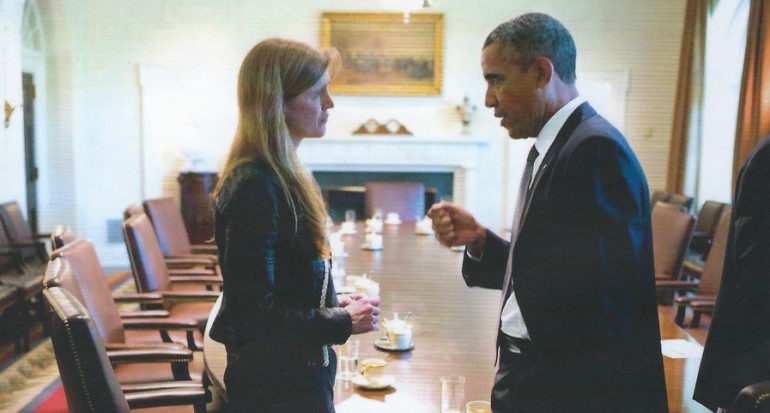a book review essay of The Education of an Idealist, by Samantha Power
- by Jamie Arbuckle for Peacehawks
… the Furies might sometimes sleep, but they were there, always there in the dark corners, and now they were awake and the iron clang of their wings was in her brain …
- Edith Wharton, The Reef, (1912)
Introduction
Since the publication in 2002 of her Pulitzer Prize winning book A Problem from Hell, which explored American actions and inaction in responding to genocides from Armenia to Kosovo, Samantha Power has been one of the world’s foremost and effective chroniclers of human rights. In her journalism, in her several books, in her teaching and in her work, she has tirelessly and courageously exposed the deeds and misdeeds of those, mostly governments, who abuse and persecute, mostly their own people. This, after having devoted so much of her life and her career to the stories of others, is finally her story, and it is well worth reading.
This book is, before everything, an autobiography, and that is in a sense a pity. Peacehawks is generally more interested in events than in personalities; we care more about what happened and why than we care about who was there, still less who is to blame. That is not to say those latter are of no consequence, but they are not our primary interest. The presence and the actions of Richard Holbrooke are of lesser consequence to the Dayton Accords which ended the war – but not the conflict – in Bosnia Hercegovina. We say it is a pity that this excellent book is so personally autobiographical, because it might otherwise have been a splendid vehicle to educate in more depth about the circumstances and the agencies, the stakeholders and the players in those years preamble to and beginning our young and already-tattered century.
We will first review the book she did write – and then we’ll discuss the book we hope she still might write.


